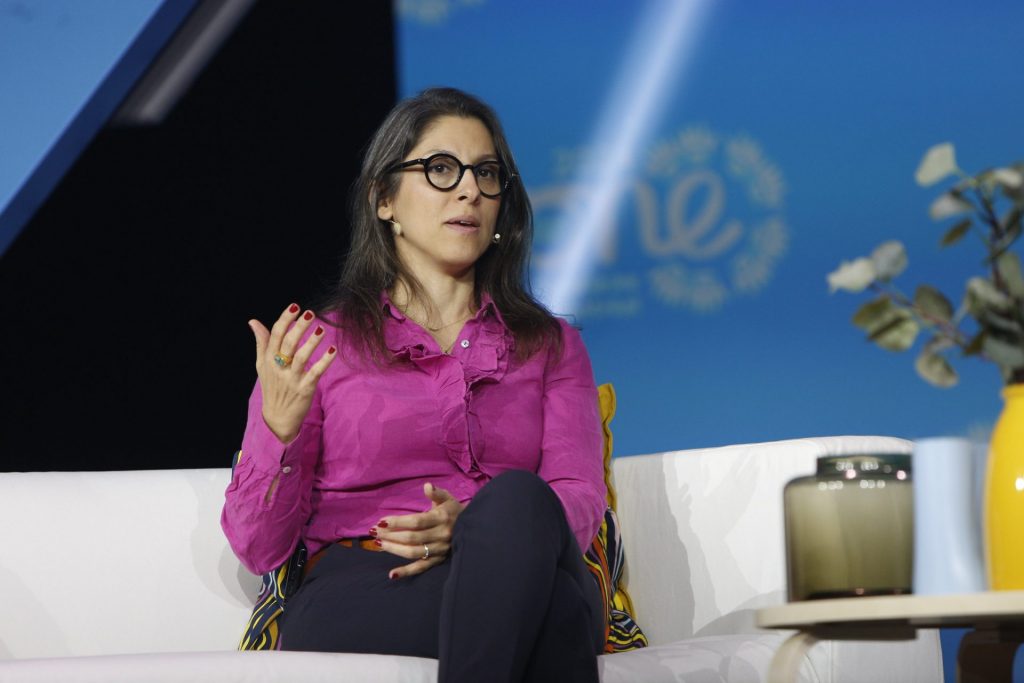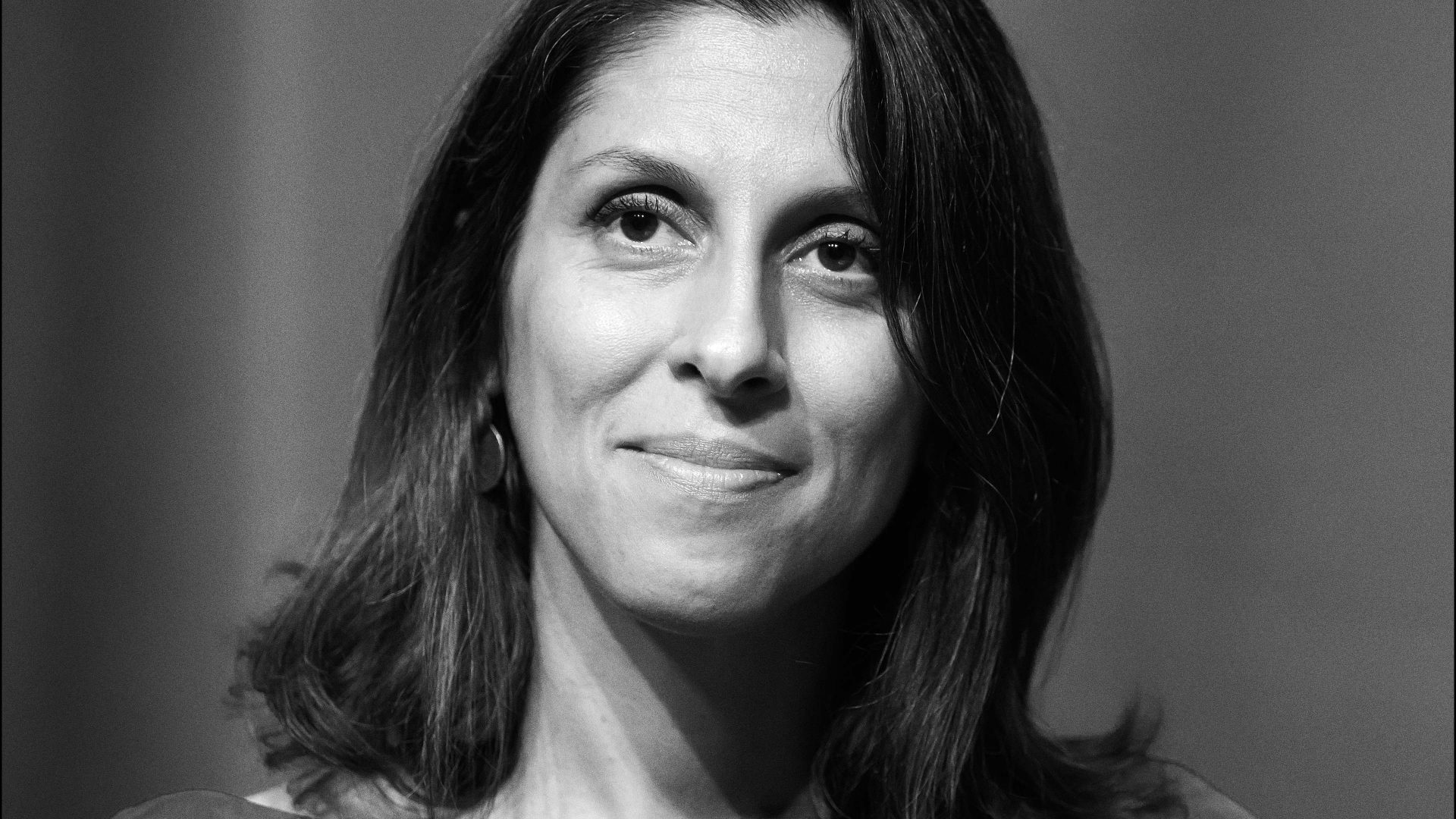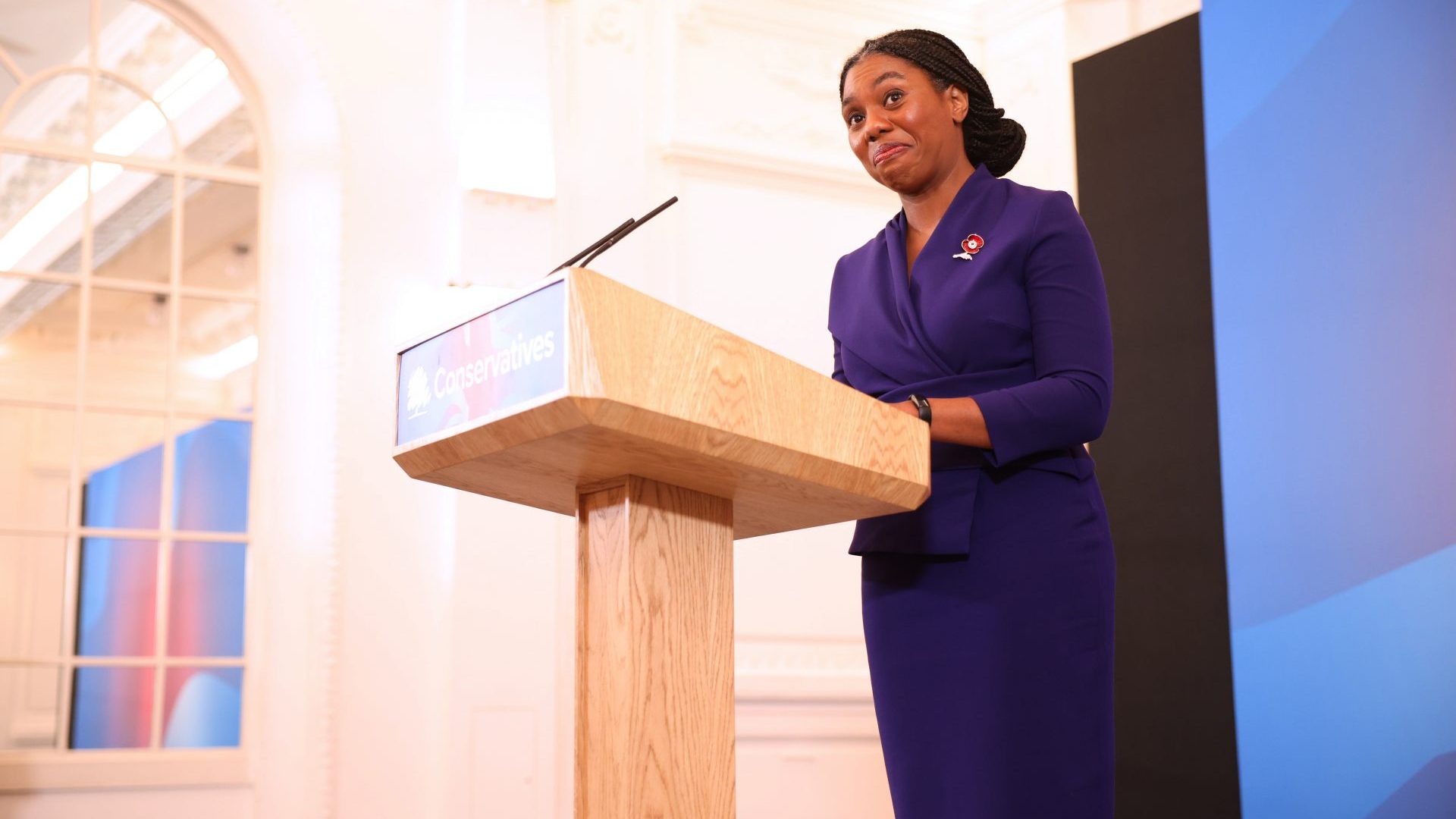Nazanin Zaghari-Ratcliffe has earned the right to be angry. In 2016, as the world knows, she was with her 22-month-old daughter Gabriella when she was arrested at Tehran airport by Iranian authorities on spying charges. Over the next six years – and five British foreign secretaries – she became a diplomatic pawn subjected to the whims of global diplomacy.
Yet, when we meet more than two years after she was released from the notorious Evin Prison, it’s the last thing on her mind. “I decided I’m not going to carry that anger with me. It would make me miserable for the rest of my life and I don’t want that,” she says. There are, however, lessons that she thinks must be learned from her case.
Zaghari-Ratcliffe was only freed in March 2022 once former foreign secretary Jeremy Hunt did what campaigners and opposition MPs had been urging for years – linking Zaghari-Ratcliffe’s case with an unpaid £400m debt that the UK owed Iran since the 1970s.
“The government paid the debt that they should have paid six years ago. The Iranian regime was very clear about what they wanted,” she says. “They look at us like prey. I was young and I had a child. You kind of assumed that no government in the world would separate a mother and a child.”
In April 2023, a scathing report by the Commons foreign affairs select committee found that the government had spurned multiple chances to free Zaghari-Ratcliffe and Anoosheh Ashoori, a British-Iranian businessman also detained at Evin, and imposed “significant suffering” on the dual nationals as a result.
Boris Johnson’s memoir, Unleashed, further reveals one such instance: in 2017, another foreign secretary, Gavin Williamson, vetoed a deal offering to pay the sum in return for Zaghari-Ratcliffe’s release out of fear the money could be funnelled into Hezbollah.
When Zaghari-Ratcliffe and Ashoori were finally released in 2022, the terms of their release were no different to those on offer in 2017, an outcome the committee deemed “highly regrettable”.
The same damning report also paints a bleak picture of yet another foreign secretary (and short-lived prime minister), Liz Truss. Morad Tahbaz, a conservationist and UK-US-Iranian tri-national, was originally set to be on the same plane that brought Zaghari-Ratcliffe and Ashoori home after Truss indicated to US officials that he had been included in the same deal. But Truss then failed to stand by this arrangement.
According to the report, the future PM called the family to say that “Morad is now a US problem”, implying that she would not put further effort into his release and would not have time to discuss the matter any further.
Zaghari-Ratcliffe says: “We were expecting Morad to be released with me and Anoosheh. He has British, Iranian and US citizenship and was left behind by the British government when we both came home. It took him and the other Americans 18 months for their time to arrive and I think all that time that it should not have happened this way. If you have a second nationality like he did, he should have been on that plane with us.”
Like hers, Zaghari-Ratcliffe is aware that Tahbaz’s case was part of a deeply political game, played behind closed doors. When news reached her that he was, finally, being released, her emotions were mixed: relief that he was safe paired with frustration that he spent eight and a half years in prison as “political leverage”.
When Zaghari-Ratcliffe first returned home, she misjudged the complexities of her freedom. Her struggle did not end, but instead, a new one began. “All of us underestimated how tricky freedom is. I was in prison for five years and then banned from leaving the country for a year.”
When she came home, it quickly became evident how long six years could be. The world had changed, people had moved on and a global pandemic had rewritten political and cultural norms. “I couldn’t pick up life where I left off. After two and a half years, I still have panic attacks passing through airports because that’s where I was arrested,” she says.
In those first few months of being back at home in London, a journey to the tube station could take up to two hours. “People would stop me in the street and tell me stories, give me flowers and take pictures with me. It was very emotional for me just because I never knew and didn’t understand what was going on outside the prison walls.”
To this day, she admits, she isn’t fully aware of efforts surrounding her release. In March 2020, the Iranian authorities temporarily released Zaghari-Ratcliffe from prison because of the coronavirus outbreak. Although unlike other prisoners, she was made to wear an ankle bracelet which her parents were required to hire.
“But after those four years that I was in prison, I couldn’t bring myself to open the internet. So even to date, I don’t think I know the extent of the campaign that has been running for my release,” she explains.
By and large, the people who approached her on the street fell into one category: mothers. “I had so many conversations with people who told me that their child was around the same age as my child. Or that throughout the time that I was in prison, they had a baby, and every time they wanted to put their child to bed, they thought about me,” she says.
When I ask her how she responded to such interactions, she confesses that, at times, she couldn’t. “I was emotionally traumatised myself and so every single story was like a wound reopening. I refused to leave the house for a very long time, just because I couldn’t emotionally cope with that. But it was very humbling that so many people have been affected by my story. At times, I was speechless.” At others, Zaghari-Ratcliffe cried with them.
It’s impossible not to notice Zaghari-Ratcliffe’s stoicism. After what she endured, she does not shy away from the fact that the idea of returning to normal feels redundant. “I don’t want to be the person that I was before prison, it changed me,” she admits.
“When I was arrested, I had my holidays planned. We’d just bought this flat and we were thinking about renovating it, we had tickets for events, but none of this happened. About a year after I was arrested, I met this amazing woman in prison. She’d been there for nine years and, sadly, she’s back in prison now. She said to me: ‘One day you will look back at how far you’ve come and then you’ll be proud of yourself’.” At the time, Nazanin responded with a question: “Will I?”
The woman who offered Zaghari-Ratcliffe this advice was Mahvash Shahriari Sabet, one of seven detained in 2008 along with six others, for their faith and activities related to running the affairs of the Bahá’í community in Iran. In July 2022, less than five years after her release, she was arrested again, and sentenced to a further 10 years in prison five months later.
There is but one fact that challenges this mentality: Zaghari-Ratcliffe’s daughter. “I don’t think I could get over the fact that that time was stolen from me and her,” she says. In an interview with Emma Barnet on Woman’s Hour when she was first released, Zaghari-Ratcliffe explained that boxes of Gabriella’s childhood belongings lay untouched and photos from that time remained packed away. When I ask if those items have become any easier to interact with, her answer is unsurprising as it is short: “No”.
“I’ve got distant friends and relatives who still live there and they’ll randomly send a picture of when she was three and it breaks my heart,” she says. “I almost don’t want to know about that time that was stolen from us – from both of us, her as well. Children grow up very quickly.”
The day before we spoke, Nazanin had a conversation with a woman who mentioned that she had a 30-year-old daughter. Before Zaghari-Ratcliffe realised it, she was asking her how it felt when she left home, went to university and embarked on a life of her own. “I’ve lost so much of her life, and she’s growing so quickly. She’s going to leave the house, go to university and then leave me. So this is the only thing I could never get over,” she says.
Hostage-taking is not a new diplomatic tool. More than a year on from the October 7 Hamas-led attacks on Israel, a total of 97 hostages remain unaccounted for. But since Zaghari-Ratcliffe was first arrested in 2016, it’s become a more entrenched, sophisticated and refined tool, cementing itself into news cycles. For Zaghari-Ratcliffe, this narrative risks missing the point.
“It has always existed, it’s just that we didn’t know about it. I think social media has played a huge role in unveiling the truth in a way that didn’t exist before. There have been more cases of hostage-taking, specifically in Iran, and it’s sad to say that it has worked. The regime arrests people and then uses them as a bargaining chip to achieve what they want,” Zaghari-Ratcliffe argues.
As someone who has been taken hostage, she explains, she’s divided. Even a single day is too long to spend in prison as a hostage taken purely to achieve a political or economic agenda, but preventing this means succumbing to authoritarian demands. “But putting all of that aside, no human being should be ever taken hostage for any political reason, full stop,” she adds.
Today, Zaghari-Ratcliffe speaks a lot about the obligations governments have to their citizens’ safety. In fact, we speak as she’s preparing to speak at One Young World’s summit in Montreal, the platform for young leaders’ annual conference that brings together young activists from across the globe. Moving forward, part of the solution, she feels, is equipping younger generations with the correct tools to tackle incidents more effectively.

“There is value in talking to the young leaders. When the female-led movement in Iran happened in 2022, one aspect of that was the students,” she says, referring to the protests that gripped both Iran and the world after the death of Mahsa Amini, who died in custody after Iran’s morality police arrested her for allegedly violating the country’s draconian headscarf rules. In March this year, a UN fact-finding mission reported that the Iranian regime was responsible for her death. Zaghari-Ratcliffe and I speak three days after the anniversary of her death.
“When it happened, it was just six months after I had come home, and at the time, I knew many more of the prisoners in the women’s ward in prison. Luckily, some of them have since been released but I don’t think any one of us would have been expecting the display of that amount of courage by women in Iran,” Zaghari-Ratcliffe says, describing the protests that followed Amini’s death as an unprecedented feminist movement.
When I ask her where, one year on, women’s rights can go from here, she is hesitant to make such predictions. She is, however, certain of one thing: it can never go backwards. The protests marked a line in the sand.
“Younger generations,” Zaghari-Ratcliffe smiles, “take no nonsense.” But while their youth allows them to view the world differently, they need to understand the harsh realities of cases like Zaghari-Ratcliffe’s and that “the world is a very unjust place”. “That education needs to start at an early age,” she believes.
But, until tomorrow’s leaders can get elected, what actions can be taken? In other words, what can be done today? Zaghari-Ratcliffe’s answer is in two parts, one of idealism and the other of realism.
“Governments must look after their citizens. We often talk about big international agreements between countries, but there is an element of human rights. Human rights should be a priority on its own and not as leverage alongside. This is wrong and it’s what has been happening in Iran,” she explains, frustrated by talks for the Joint Comprehensive Plan of Action (JCPOA), more commonly known as the Iran nuclear deal. “They often talked about human rights as a side element, whereas it has to be a priority,” she sighs.
Still, Zaghari-Ratcliffe is a realist and appreciates the fact that the answer will be financial. “I understand that you can’t just wake up in the morning with the solution to hostage diplomacy. It’s a gradual kind of process – it doesn’t happen overnight.
“But, it has to be made so expensive for countries that they won’t do it. They look at the cost and they look at the price. The price must be a lot bigger than the cost,” she says, explaining that it’s only with this financial deterrent in place that “countries like Iran” can be held accountable.
“We haven’t done anything wrong,” she says of her fellow captives. “We are just taken for political leverage. They can’t get away with it, because my life has been screwed and there are so many people like me.”
Nazanin Zaghari-Ratcliffe recently spoke on gender-based peace-building at the One Young World Summit in Montreal




